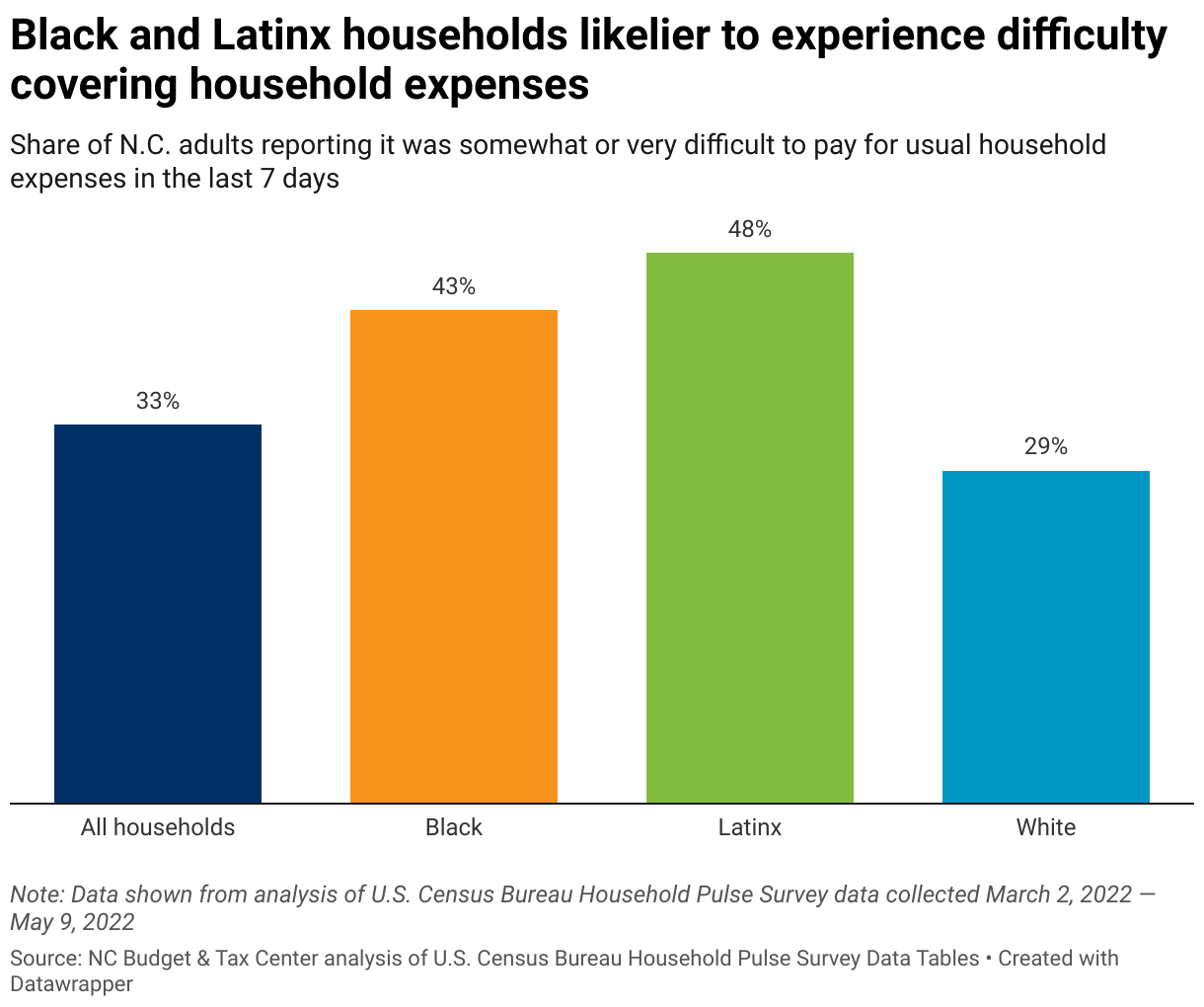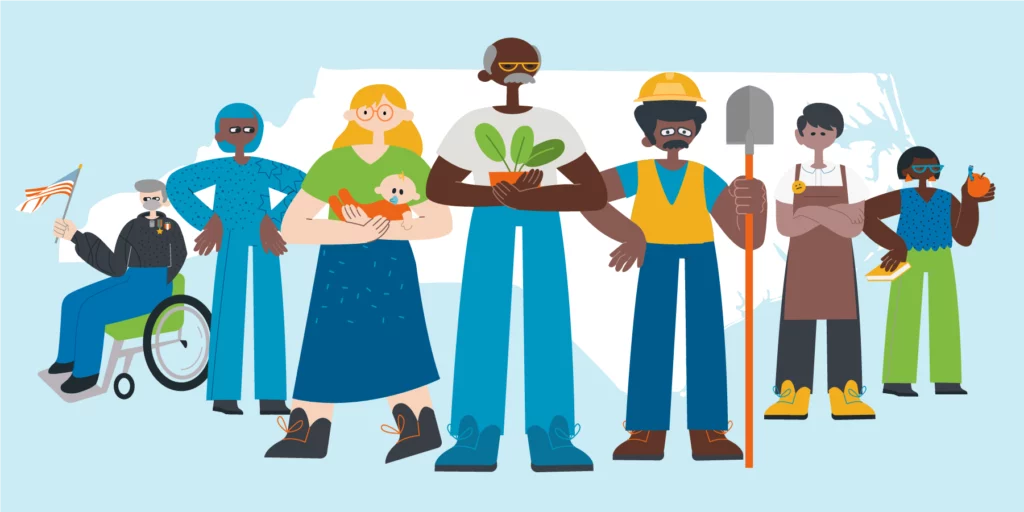
Hardship across North Carolina demands policy action
The North Carolina General Assembly ended its session last week without taking serious action to address the hardship that people are experiencing across our state.
Although communities are learning how to manage and mitigate the COVID-19 pandemic, its lingering effects — coupled with inflation and longtime inequities — will require antiracist policies from N.C. lawmakers in order to build economic well-being for North Carolinians. The state budget signed into law on July 11 doesn’t do this.
Data from the U.S. Census Household Pulse Survey from spring 2022 highlighted the ongoing hardship being experienced by N.C. households. Among all households surveyed, 33 percent reported difficulty keeping up with usual household expenses, a 5 percentage point increase compared with Fall 2021 responses. Households with children face higher rates of hardship. Forty percent of households with children said they are having difficulty paying for expenses compared with 29 percent of households without children.
The temporary federal advanced Child Tax Credit (CTC), which ended in December 2021, supplemented household income for many Americans. The monthly direct deposit offered households with kids a needed boost to cover expenses such as rent, utilities, groceries, and childcare. The loss of this benefit likely has contributed to increased hardship among households with children in 2022. Lawmakers could have passed a state CTC to bolster family stability amid the rising costs of goods and services, but instead, they left families in the lurch.
A closer look at these data shows wide disparities by race and ethnicity. Forty-three percent of Black households and 48 percent of Latinx households indicated they had difficulty paying for usual expenses, compared with 29 percent of White households. Historical policies and ongoing structural inequities continue to contribute to racial inequities in our state. The recent legislative session was missed opportunity to implement policy solutions that promote good paying jobs for Black, brown, and white North Carolinians, as well as intentional resource allocation to communities of color to address hardship across the state.
Food insecurity is also widespread, according to the survey results. The percent of N.C. households reporting they did not have enough to eat in the last 7 days is 12 percent compared with 9 percent in the Fall 2021 survey responses. Households with children experienced higher rates of food insecurity with nearly 1 in 6 N.C. households with children saying they sometimes or often don’t have enough to eat.
Housing affordability adds another lens for seeing economic hardship in our state. Fourteen percent of renter households and 16 percent of households with children reported being behind on rent payments.
The recent U.S. Census Household Pulse Survey highlights the compounding effects of the COVID-19 pandemic, inflation, and end of the federal advance CTC, in addition to ongoing disinvestment in safety-net programs. Together, these forces make it harder for people and families in North Carolina to keep up financially and meet their basic needs.
The enacted state budget missed an opportunity to allocate resources that would prioritize a state economy where all households can thrive. Yet, opportunity still exists for communities to take action by using local American Rescue Plan funds and to build up the will among state lawmakers to enact key policies like a state Earned Income Tax Credit (EITC) and CTC to support the economic well-being of families. Policies that ensure every North Carolinian’s basic needs are met would build a solid foundation for our state’s children to grow and for their families to build a sustainable and brighter future.



